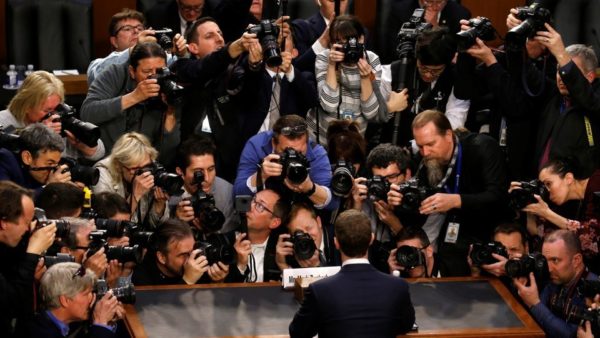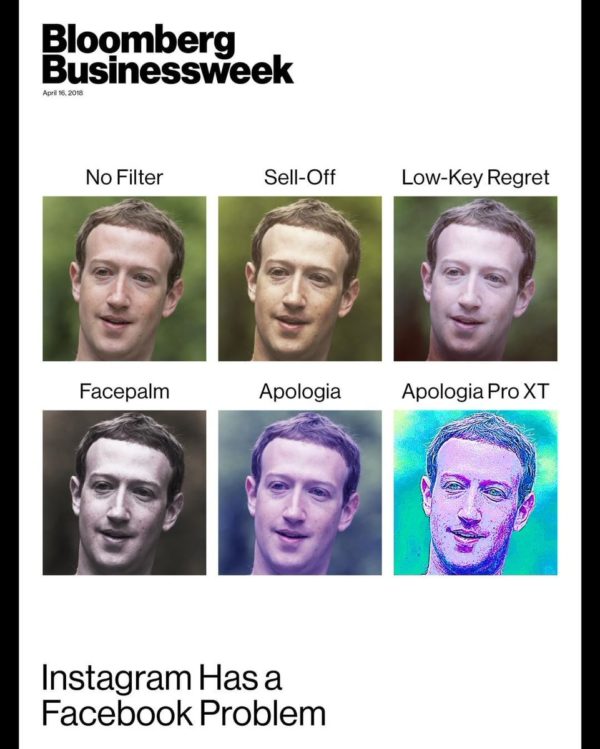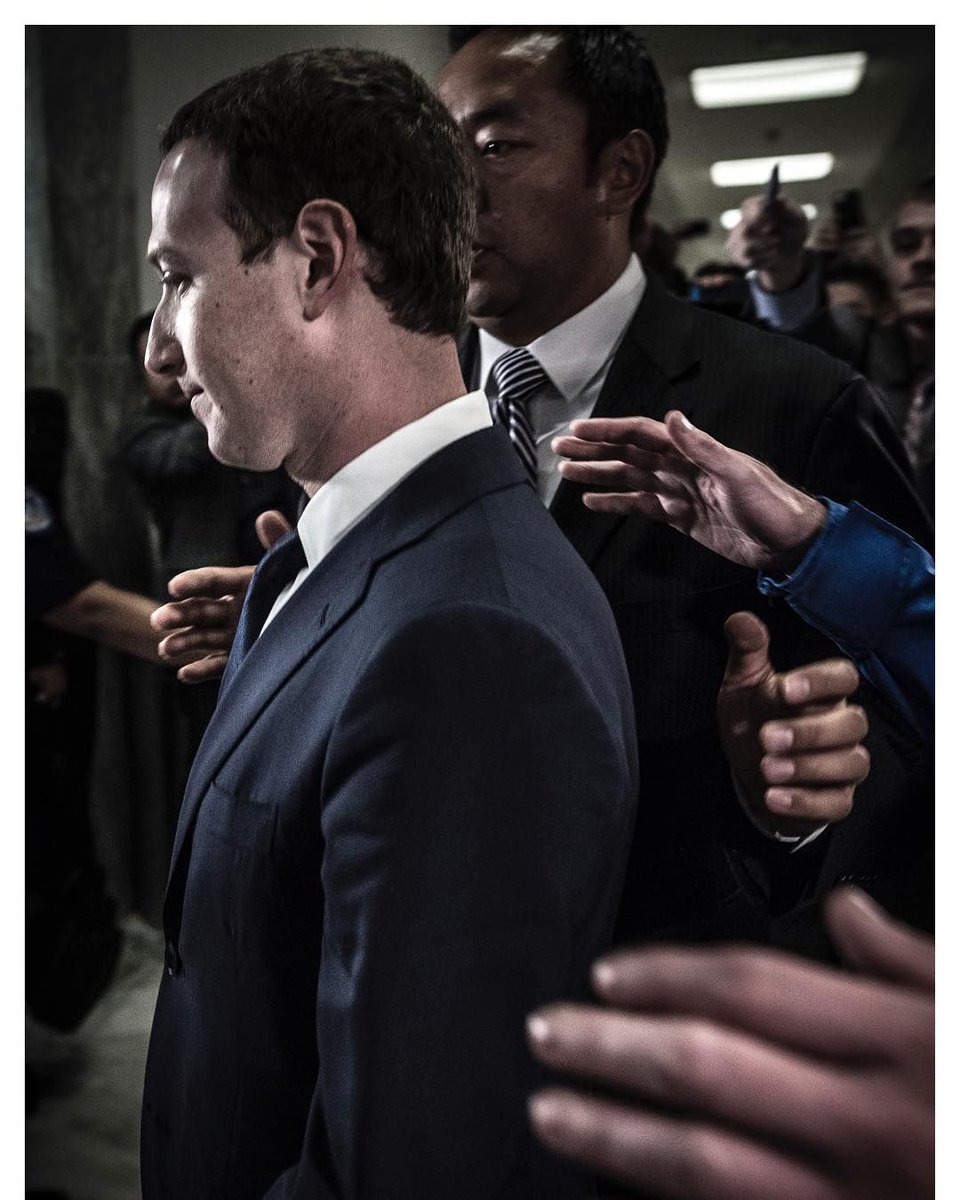Notes
Here’s Looking at You Kid: Mark Zuckerberg’s Elusive DC Testimony

When Mark Zuckerberg testified on Capitol Hill to discuss Cambridge Analytica’s abuse of Facebook user data, photographers swarmed the witness table. But the promised spectacle quickly turned into a tedious marathon of grandstanding and partisan accusations by the legislators, and stilted delivery, and earnest, but vague promises by the CEO.
Given the breadth of agendas (including foreign interference in presidential elections; diversity in Silicon Valley; law enforcement access to data; Facebook’s obscure terms of service; hate speech; censorship; market monopoly), none demanded, nor allowed, for an illuminating response, and was predominantly met by Zuckerberg’s courteous deflections or reiteration of Facebook’s ethos of “community” and “connection building.”
If the testimony was underwhelming, however, the visual were in overdrive. Many of the shots quickly turned into memes. Photos parodied his power and Facebook’s ubiquity. They attacking Zuckerberg’s physical appearance, drawing attention to his visible awkwardness, his short height masked by a booster seat; his paleness; his bulgy eyes; as well as the “I’m sorry suit” replacing his trademark T-shirt. Such visual targeting brings to mind the image wars waged on women and women of color in recent years, including Hillary Clinton, Michelle Obama, Nancy Pelosi, and Emma Gonzalez. (Even though white masculinity seems more resistant to body shaming and ridiculing physical appearance, I do not want to dwell on these images here.)
Of all the pictures, Leah Millis’ widely circulated “reverse gaze” photo was the most compelling. Contrasting the animated crowd of photographers with an immobile Zuckerberg, the picture takers supersede the object of universal attention. Unnamed hands are more prominent than the face of Facebook. Stilted by the proximity, the table hardly serves as a barrier. He is also disembodied, cut off by the bottom of the frame.
The iconography of the Congressional witness is not new. Thinking Betsy DeVos, James Comey, or Hillary Clinton’s Benghazi testimony, neither is the sensational appearance. But what made this different was Facebook. Those cameras are not just seeking to fix on a man. The press corps is trying to capture the hybridity between media and tech, emotional connection and data-pulling, human moderation and the soulless algorithm, the ad-based business model and the idealized mission statement. The legislators and the image share the same aspiration: to capture, expose, and frame.
Zuckerberg has always been the “face” of the brand, but that face has changed since the company launched in 2004: the awkward nerdy Harvard whizz kid transformed into another twenty-first century white male corporate billionaire. As such, Millis’ photograph enacts a revenge fantasy for Facebook’s role in the 2016 elections; for the highly lucrative and surreptitious surveillance of its user base, for “shadow profiles” of nonusers, and for eroding the privacy of billions of people. “We got you,” they seem to say, “Now you are the one being mined.”
But the image, like the event itself, is (deliberately) anticlimactic; it fails to show Zuckerberg’s face or Facebook’s face. The House hearing on Wednesday was more rigorous but it did not bring closure. We, the audience, remain as far from visualizing an infrastructure as the legislators were.

The Facebook CEO apologized, and professed innocence, idealism, and, repeatedly, “optimism,” but I mostly heard him claim ignorance over specific dealings and cornerstone pieces of legislation alike.
His responses felt to many as a set of templates, reiterated in different tones aimed at different purposes. (That point has been captured wittingly and meme-like by the Bloomberg cover above). Zuckerberg failed to confirm or deny that Facebook tracks individual devices without user contact, or that Facebook tracks users’ online activity after they log off. He hewed closely to his talking points, dodged and deflected many yes-or-no questions, generously distributing “generally,” “we-should-talk-more,” or “my team will get back to you.” Zuckerberg was steadfastly not going to be captured or pinned down either legally, rhetorically or visually. The witness image might feel cathartic, but the truth of the spectacle is that there was really not much to see.
— Marta Zarzycka
(Photo: Leah Millis/Reuters Caption: Mark Zuckerberg is surrounded by members of the media as he arrives to testify. April 9, 2018; Photo 2: David Paul Morris/Bloomberg via Twitter. Caption: Bloomberg cover, April 16, 2018.)


Reactions
Comments Powered by Disqus